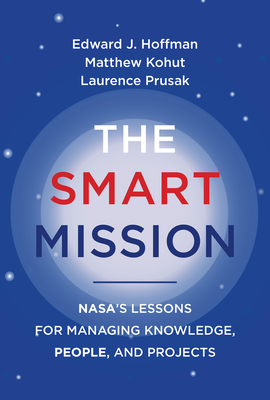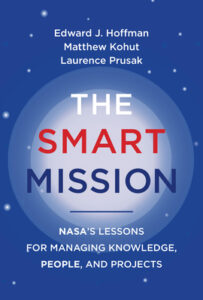
17 Nov THE SMART MISSION – MANAGING KNOWLEDGE – PEOPLE AND PROJECTS

Why human skills and expertise, not technical tools, are what make projects succeed.
The project is the basic unit of work in many industries. Software applications, antiviral vaccines, launch-ready spacecraft: all were produced by a team and managed as a project. Project management emphasizes control, processes, and tools—but, according to The Smart Mission, that is not the right way to run a project. Human skills and expertise, not technical tools, are what make projects successful. Projects run on knowledge.
This paradigm-shifting book—by three project management experts, all of whom have decades of experience at NASA and elsewhere—challenges the conventional wisdom on project management, focusing on the human dimension: learning, collaboration, teaming, communication, and culture.
The authors emphasize three themes: projects are fundamentally about how teams work and learn together to get things done,the local level – not an organizations upper levels – is where the action happens, and projects don’t operate in a vacuum but exist within organizations that are responsible to stakeholders.
Drawing on examples and case studies from NASA and other organizations, the authors identify three project models—micro, macro, and global—and their different knowledge needs. Successful organizations have a knowledge-based culture. Successful project management guides the interplay of knowledge, projects, and people.
If we have emphasized one theme throughout the book, t is that focusing on the human dimension of project work offers the greatest potential for return on investment to an organization, its stakeholders and society. As we said in the introduction, projects run on knowledge that can be technical, organizational or political. Teams function within organizations that empower or constrain them through a combination of bureaucratic means such as governance and intangibles such as culture and a shared sense of mission and purpose. They explore,fail,improvise and maneuver in response to challenges they didn’t or couldn’t anticipate and as a result they learn the only way they can together: The starting point for knowledge is not information. It is people.
Article written on The Smart Mission: NASA’s Lessons for Managing Knowledge, People, and Projects | Bookpath
www.bookpath,gr/en
